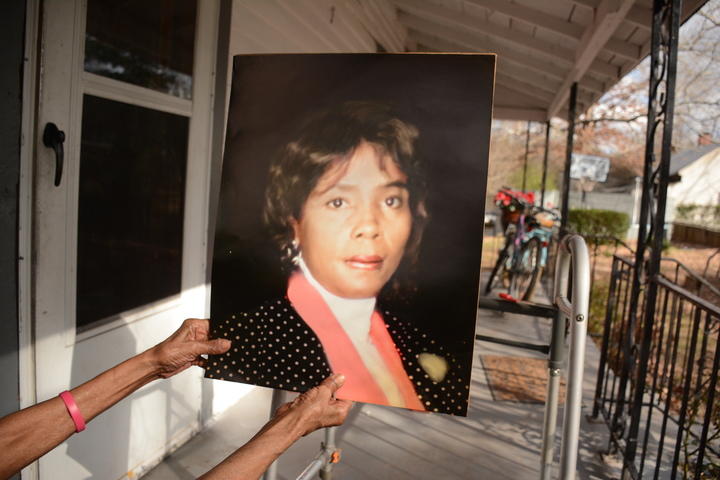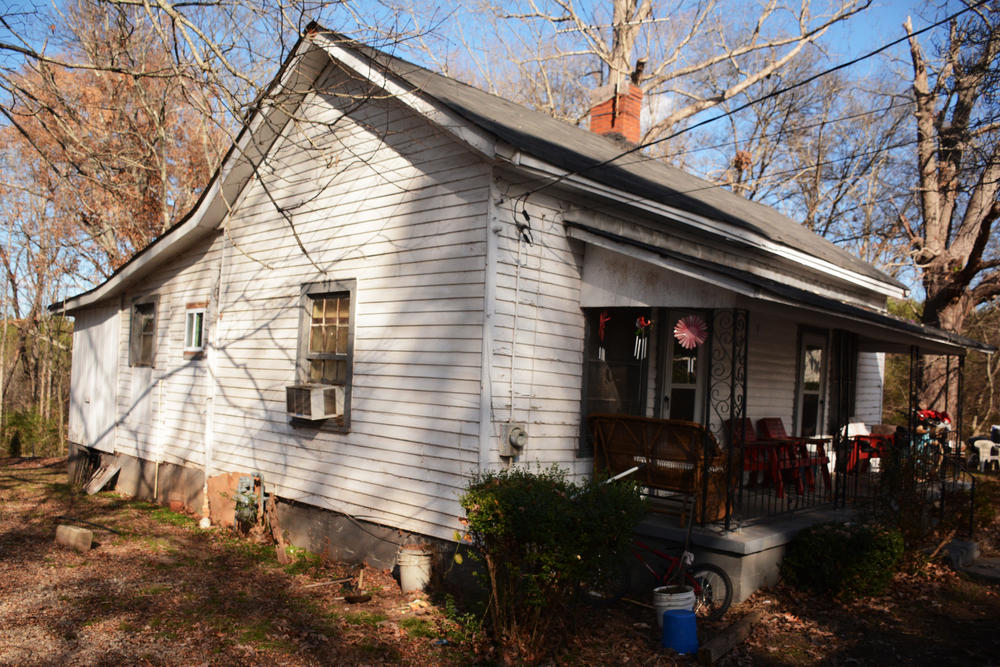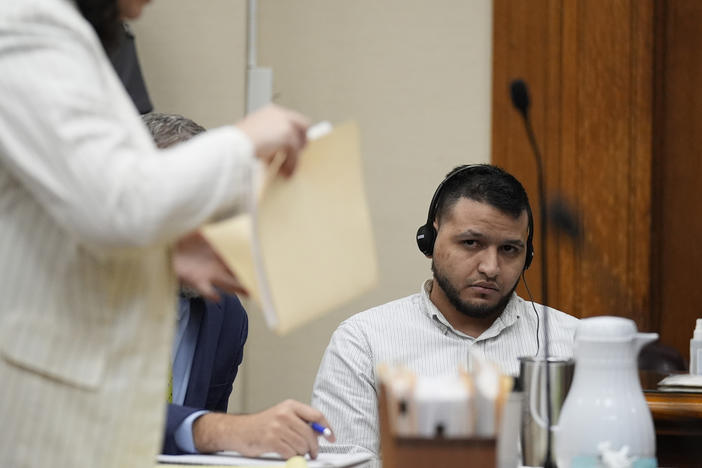Section Branding
Header Content
Inherited Property Puts Vulnerable Georgia Communities At Risk
Primary Content
All over Georgia, property is passed down from generation to generation without proper legal paperwork.
It’s known as heirs property, and it creates a host of problems: from the inability to access home equity to the risk of losing your house.
And in the small city of Porterdale, about 40 miles east of Atlanta, it’s put one community on the verge of disappearing completely.
Camille McKnight has spent many an afternoon on the front porch of her small white house in Porterdale.
The home has been in her family a long time.
“My granddaddy lived here, and he moved, and then my parents moved down in this house,” McKnight said. “I don’t know what year or whatever.”
McKnight’s is one of about 15 homes that make up Rose Hill, a neighborhood built a century ago for African-American workers at the local Bibb Manufacturing Company cotton mill.
“They had rose bushes from the city limits of Porterdale when you came in all the way down. I guess that’s how they got the name Rose Hill from the roses,” McKnight said.
Since the mill closed in the 1970s, Rose Hill hasn’t aged well. Many of the homes haven’t been kept up to code. Some have been abandoned completely, left to slowly dissolve into the woods.
“If we don’t get no help up in here to try to improve up in here, I just wonder: ‘Will there be a Rose Hill?’” McKnight said.
In 2013, Porterdale made an attempt to offer that help. The city won a community development block grant to rehab homes in Rose Hill. But their plan to fix up the neighborhood hit a snag.
“You couldn't get the grant because the person’s name the house in have to be living,” McKnight explained.
The title to McKnight’s home was still in her parents' name, because nobody had filed the appropriate legal paperwork to officially pass it down.
And McKnight wasn’t alone: many of her neighbors found themselves living in homes officially owned by relatives.
In the end, the lack of clear ownership records caused Porterdale to lose the grant. No money went to Rose Hill.
“At that time, not anyone owned their property outright,” said Terry Gray, who sits on the Porterdale City Council.
Gray has made it her mission to save Rose Hill, a process she said starts by cleaning up property titles.
“Even though you’ve lived in the house, and you say, ‘I have a letter [saying the house is mine].’ That’s fine,” Gray said. “But when it comes to grants and taxes, the property needs to be in your name.”
It’s been an uphill battle. Gray said the already-chilly relationship between Rose Hill and Porterdale got even colder after the grant fell through. She said what little trust neighborhood residents had in the city shrank even more.
Still, Gray has been able to get the ball rolling thanks to help from a Georgia legal nonprofit.
“It doesn’t matter whether you’re trying to completely transform and remake a neighborhood or you’re trying to preserve a neighborhood. Title is at the root of whether you’ll be successful in either case,” said Delene Porter, with the Georgia Heirs Property Law Center.
Porter said the group works all over the state to help people like Camille McKnight, who’s one of their clients, prove they own their homes.
“It’s the two most complicated things: it’s land and family,” Porter said.
First, you have to track down every relative with a claim to the property. Then, you have to make sure they don’t want it. Porter said the process can take years.
But there’s a lot at stake. Porter estimated as much as 10 percent of all property in Georgia doesn’t have a clean title.
"Quite frequently, as you’re driving through your town or city and you see a home that’s run down and you might consider it blight, chances are it’s actually heirs property," Porter said.
The Federal Reserve Bank of Atlanta has put the total value of heirs property in the Southeast at billions of dollars.
What’s more, heirs property tends to affect people that are already vulnerable: individuals for whom access to the value in their home could serve as a major economic leg up.
Thomas Mitchell, who studies heirs property at Texas A&M University School of Law, said you find it pretty much anywhere you find marginalized groups of people.
“The fact that people own heirs property to begin with reflects some historical factors,” Mitchell said. “For example, right after the end of the Civil War, African-American property owners were denied legal services in many places throughout this country.”
Mitchell said it’s hard to quantify the problem on a national scale, but pointed out he’s seen heirs property issues in every region of the country, from Hawaii to South Carolina.
He said it affects Native American and immigrant communities, the urban and rural poor, and former mill towns like Porterdale.
Back in Rose Hill, Camille McKnight recalled spending time on her porch as a child watching traffic on the nearby state highway.
“And [me and my siblings] would sit out here, and we would pick out our cars. ‘I got the blue one, the black one.’ You know, stuff like that,” she said.
McKnight has a life full of memories here, but doesn’t know what will become of her home or Rose Hill.
“After I’m gone, even though the house is not in my name, I just wish somebody in the family would carry on,” she said.
But that hope may be in vain. McKnight said she doesn’t have a will and hasn’t discussed the matter with her children.
Secondary Content
Bottom Content









